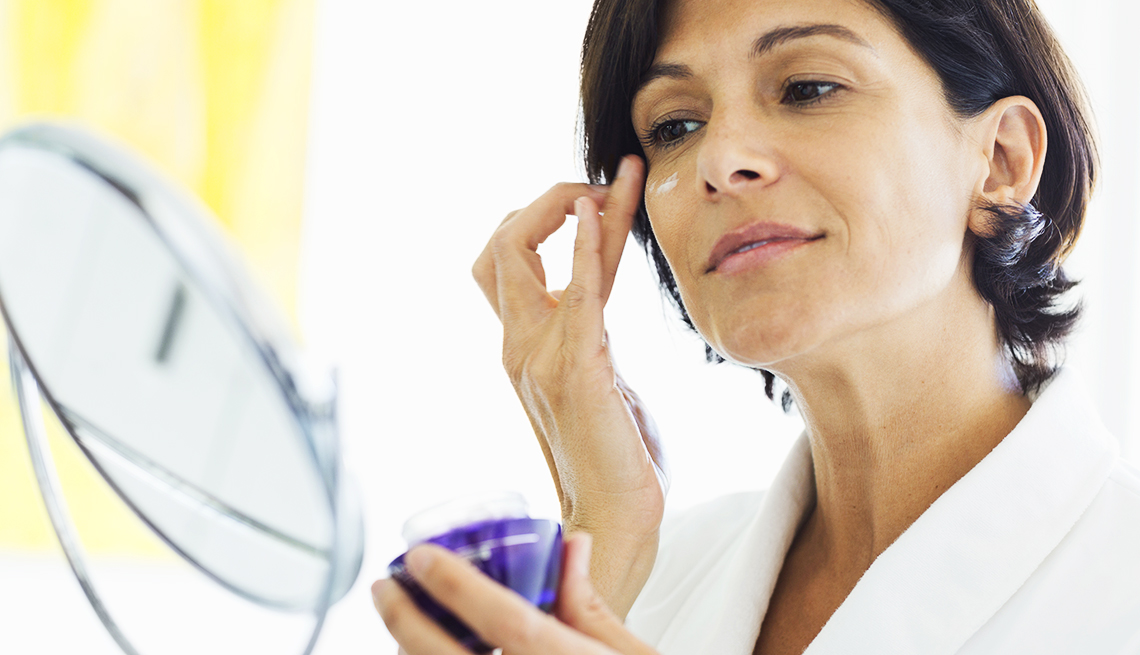AARP Hearing Center
While the label may say "fragrance-free" or "hypoallergenic," you still could be lathering your face with chemicals that could trigger an allergic reaction, according to a study published in this month's Journal of the American Medical Association (JAMA) Dermatology.
Researchers requested the top 100 best-selling whole-body moisturizers sold online by Amazon, Target and Walmart. They then analyzed whether the ingredients could trigger allergic reactions and found that only 21 out of 174 individual products tested, or 12 percent, were free of allergens, Reuters reports.
Fragrances and chemicals known as parabens and tocopherols were found in many moisturizers, which can irritate skin conditions such as eczema and psoriasis, or cause rashes.
Lead study author Steve Xu, of the Northwestern University Feinberg School of Medicine, told Reuters that customers can’t assume that moisturizers marketed as "hypoallergenic," "fragrance-free" or even "dermatologist-recommended" will actually help skin conditions. "Trusting the labels is not enough,” Xu said. “Making sure there are as few ingredients as possible is also a good thing to double-check.”
Increased price without increased benefits
The study found that products marketed to people with skin problems such as eczema and psoriasis tended to cost more, yet they don't avoid all ingredients that could actually make their conditions worse. Approximately 83 percent of moisturizers identified as “hypoallergenic” contained at least one potentially allergy-inducing ingredient, and 45 percent of products claiming to be “fragrance-free” actually contained a fragrance or a botanical ingredient, the study found.
The North American Contact Dermatitis Group (NACDG) determines whether or not a product contains typical skin allergens. Truly allergen-free products, under their guidelines, include white petroleum jelly, cold-pressed and unrefined coconut oils, Vanicream hypoallergenic products and Aveeno Eczema Therapy moisturizing cream, according to the researchers. The three most-affordable products containing allergen-free ingredients, according to NACDG guidelines, are raw, unrefined ivory shea butter, Vaseline and Smellgood African shea butter.
Xu told Health.com that dermatologists should be as specific as possible in recommending both a brand and product type to their patients that takes both price and ingredients, as well as consumer preference, into account.



































































